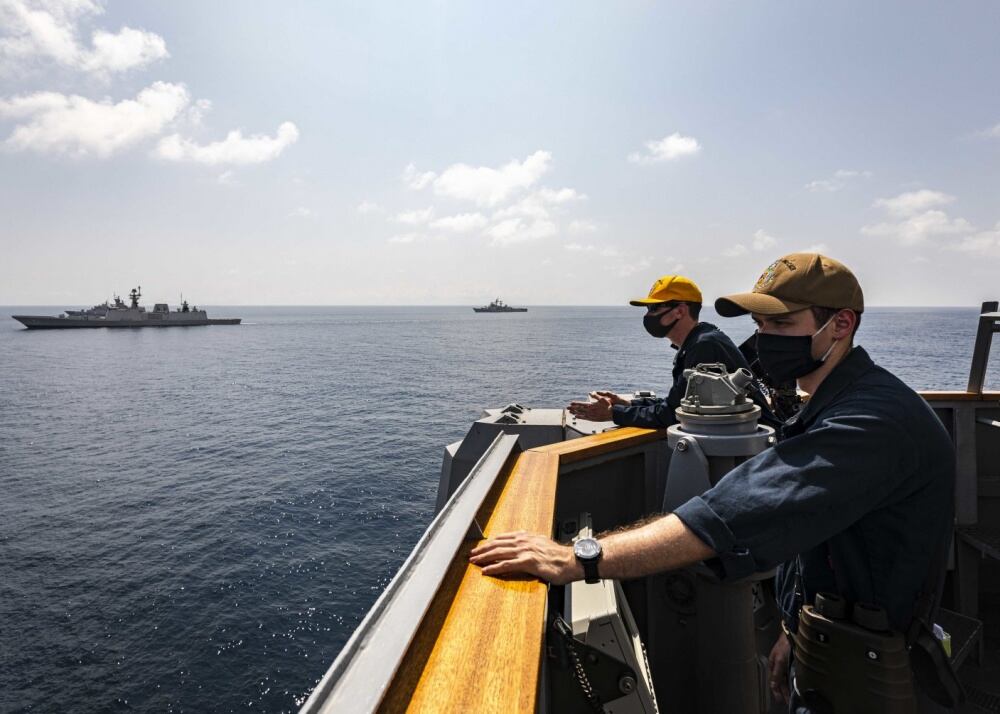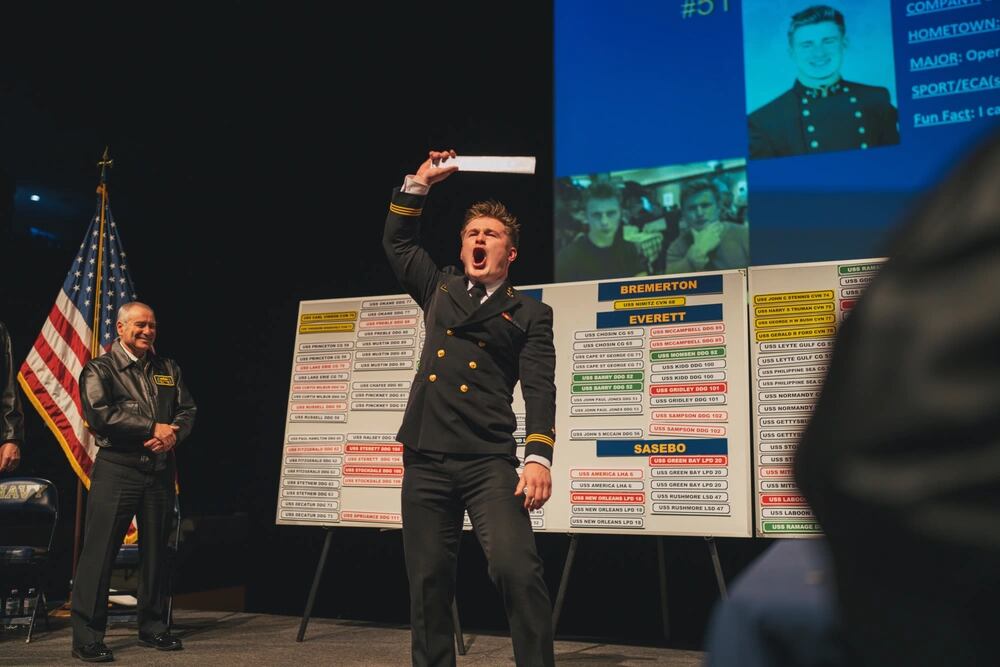Fewer than half of the Navy’s surface warfare officers want to go on to command, and most believe the surface fleet is failing to retain “top talent,” according to the results of a 2022 survey released earlier this month by Naval Surface Forces, or SURFOR.
“The majority of officers had ‘little interest’ or were ‘unsure’ if they were interested in serving as a CO,” according to a report on the survey’s findings.
The survey — which included 2,550 participants from the ranks of ensign to captain, a 33 percent response rate — sought to identify the reasons why surface warfare officers, or SWOs, leave the Navy, as well as what they like and dislike about their work.
“These surveys informed us that sitting Major Commanders are the most satisfied with being a SWO, while lieutenants junior grade are the least satisfied,” the report states.
RELATED

A majority of respondents indicated that they liked the challenge of their work, the responsibility required of their jobs and working alongside junior sailors.
“Conversely, both junior and senior officers are frustrated with the amount of friction caused by administrative tasks, believe work is not equitably distributed, and are displeased with the working hours during shipyard availabilities,” the report states. “SWOs are less satisfied with promotion equity due to performance.”
SURFOR officials say community leadership decided to post the survey on the command’s website this month to foster transparency and show SWOs that they are listening to their concerns.
“This survey is about listening to our wardroom, hearing what they are saying, and taking meaningful actions to make our community better,” said Capt. Andy Koy, who is leading the SURFOR effort, in a statement.
ON SURFACE WARFARE: SUMMARY OF 2022 OFFICER SURVEYS
The survey also found that 71 percent of lieutenants junior grade cited the possibility of having to serve on an afloat staff after their second division officer tour as a reason why they would want to leave the SWO community.
It found that 44 percent of junior officers, and 65 percent of senior officers, are interested in one day serving as a commanding officer.
“The top factors dissuading junior officers from pursuing command were too many requirements, lack of control, time away from home, high stress and toxic culture within the SWO community,” the report states.
Lieutenants junior grade were the most likely rank to want to leave the Navy and the least likely to want a command.
The survey found that more of the male SWOs surveyed wanted command, 47 percent, compared to 34 percent for female SWOs.
RELATED
It also found that the contrast in command desire was smaller between white and non-white officers, 45 percent to 41 percent, respectively.
Most junior officers who took the survey reported being satisfied with their salary, health insurance, retirement pay and housing allowance, but were less happy with their bonuses, graduate school options, family support services and the blended retirement system, according to the report.
About 83 percent of surveyed junior officers “do not believe that top talent remains to serve as department heads,” while 71 percent don’t believe the promotion system is based on actual performance.
This latest survey found that “women expressed a strong overall desire to separate from the service, with the ability to start a family as the leading reason why they plan to leave the Navy,” the report states.
SWO retention is not a new issue.
Navy Times cited a Government Accountability Office report in 2021 that found just 33 percent of SWOs remain in the community after a decade of service, around their first major career milestone, compared to 45 percent of officers in other Navy communities.
That watchdog report also noted that 12 percent of female SWOs remain in the community after that time, compared with 39 percent of male SWOs.
“It’s a shitty job, to be honest,” a female lieutenant who requested anonymity because she was not authorized to speak about her experience told Navy Times in 2021. “You see these pilots who get to fly, and they love flying. (Commanding officers) love driving the ship. But me, as a middle manager on the ship, I don’t sleep. And the CO sleeps less than that.”
The survey released this month noted prior studies on female SWO retention challenges.
“Additionally, the relative scarcity of women in military leadership roles may discourage junior women from pursuing leadership roles, which is a cognitive phenomenon in which minority groups avoid pursuits in which they are at risk of confirming a stereotype about their group,” the report states.
The survey further found that about 10 percent of survey respondents applied to the community’s Warfare Tactics Instructor, or WTI, program, which trains SWOs to conduct ship training and experiment with new tactics.
A Defense News report last year revealed the Navy was struggling to keep these instructors.
In response to the survey’s findings, SURFOR notes that it is standing up a number of initiatives and “evolving policies” that seek to retain more SWOs in the fleet.
Following a junior officer training symposium last summer with SWO boss Vice Adm. Roy Kitchener, the community is now allowing first tour division officer transfers based on SWO qualifications, and has changed the window for when officers can attend department head school.
Before, attending the school required seven-and-a-half years of commissioned service. Under reforms, sailors can now attend that school anywhere between five and nine years of service, according to officials.
Those reforms also allow officers to serve one longer division officer tour, instead of two.
SURFOR is also allowing second tour division officers to serve on afloat staffs while expanding graduate education opportunities for WTIs.
“It is our priority to recruit and retain talented officers to lead our combat forces,” the report’s summary states. “Talented leadership retains talented subordinates, and passion begets passion within our profession.”
USNI News first reported on the SWO survey’s findings.
Geoff is the managing editor of Military Times, but he still loves writing stories. He covered Iraq and Afghanistan extensively and was a reporter at the Chicago Tribune. He welcomes any and all kinds of tips at geoffz@militarytimes.com.




